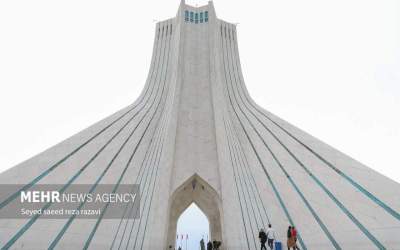Sunday 9 August 2015 - 11:54
Story Code : 175291
Concerns over an empowered Iran threatens nuclear deal
It's a concern that is widely shared and may become the single most important threat to the president's signature foreign policy achievement.
Sen. Chuck Schumer, who is poised to become Senate Democratic leader next year, and Rep. Eliot Engel, ranking Democrat on the House Foreign Affairs Committee, both cited that concern Thursday as each announced his opposition to the agreement.
"Even under the weight of international sanctions, Iran was able to support terrorist groups, such as Hezbollah, Hamas and other violent extremists. Awash in new cash provided by sanctions relief, Iran will be poised to inflict even greater damage to Syria, Yemen, Iraq, Lebanon, Israel and our Gulf partners," Engel said.
The agreement signed July 14 in Vienna between Iran and six world powers � the United States, Britain, France, Germany, Russia and China � would put Tehran's nuclear program on ice for 10 years and forbid the development of a nuclear weapon.
But in exchange, Iran's diplomatic isolation would end. International sanctions on commerce would be lifted and Iranian banks no longer would be shut out of the global financial system. Embargoes on the sales of arms and ballistic missile technology would be removed within eight years, potentially allowing Iran's conventional military power to quickly expand.
Among the more immediate effects would be the release of some $150 billion in frozen Iranian assets, of which between $50 billion and $100 billion would become available within months, fueling fears that it would provide a windfall to Tehran's proxies, fomenting instability in the Arab world and to terrorist groups targeting Israel.
"When it comes to the non-nuclear aspects of the deal, I think there is a strong case that we are better off without an agreement than with one," Schumer wrote in an essay on the website Medium.com explaining his decision.
Since taking office in 2009, Obama has done nothing to stem the rise of Iranian influence in the Middle East, fueling concerns that he was willing to sacrifice just about every other U.S. interest in the region for the goal of reaching a nuclear deal with Tehran.
In many cases, particularly in Iraq, Lebanon and Syria, the administration shifted U.S. policy more into line with Iran's from that pursued by President George W. Bush, and there is widespread concern among mostly Republican lawmakers that negotiations with Tehran have caused the administration to tread too softly in its efforts to defeat the Islamic State.
Now that the deal is signed, administration officials are promising to push back against Iranian behavior, a promise that is widely disbelieved, as is Obama's insistence that the agreement will put future U.S. presidents in a much stronger position versus Tehran.
Concern about the lack of pushback is widespread among lawmakers, though it is unlikely to sway enough Democrats to thwart Obama's vow to veto any congressional resolution disapproving of a deal.
"Instead of weakening this radical regime, a regime with American blood on its hand, this agreement would make Iran stronger," Senate Armed Services Committee Chairman John McCain, R-Ariz., and Sen. Lindsey Graham, R-S.C., said in a joint statement after Obama defended the deal in a speech on Wednesday as the only alternative to war in the Middle East.
U.S. allies in the region also remain skeptical, though both Secretary of State John Kerry and Defense Secretary Ashton Carter have traveled extensively in the region to reassure them since the deal was signed.
Officials and citizens in Arab countries are concerned that Iranian influence and meddling will increase under the deal as Tehran benefits from sanctions relief, and they are skeptical that Washington will act effectively to counter those trends, said Joyce Karam, Washington bureau chief for the pan-Arab Al-Hayat daily.
"Rightly or wrongly, this is the perception today in the Arab world," she said. "There is a real concern that this might feed more chlorine bombs, more barrel bombs, more Hezbollah fighters in Syria, more mercenaries coming to the [Iranian] regime."
This article was written by for washingtone Xaminer on AUG. 4, 2015
# Tags










